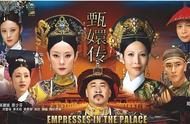被动语态的八大时态用法归纳
一、英语语态分为:主动语态和被动语态。
主动语态表示主语是动作的执行者。巧记为:主动、主动、主去动。
被动语态表示主语是动作的承受者。巧记为:被动、被动、主被动。动词只有及物动词才有被动语态。
二、主动语态转变为被动语态
含有单宾语的主动句"主语 动词 宾语"变被动句后形式为:
主语【原宾语】 be 动词的过去分词( by 宾语【原主语】)。
主动语态:He cleans the room every day.
被功语态:The room is cleaned by him.
三、被动语态的构成及时态:
1. 构成:be 过去分词 ( by 动作执行者)
2. 被动语态可用于各种时态,通过助动词be的变化来表示:
1) 一般现在时的被动语态. am / is / are 动词的过去分词
Our classroom is cleaned every day.
This car is made in China.
2) 一般过去式的被动语态: was / were 动词的过去分词
The station was built in 1928.
3) 现在进行时的被动语态: am / is / are being 动词的过去分词
A new factory is being built in our city now.
4) 过去进行时的被动语态: was / were being 动词的过去分词
Some babies were being looked after by Miss Chen last year.
5) 一般将来时的被动语态:
· will / shall be 动词的过去分词
· am / is / are going to be 动词的过去分词
Some new factories will be built in our city this year.
This letter is going to be posted in an hour.
6) 过去将来时的被动语态:
· would / should be 动词的过去分词
· was / were going to be 动词的过去分词.
She said that some new books would be bought for the children.
He thought that your watch was going to be built a new school next year.
7) 现在完成时的被动语态:have / has been 动词的过去分词
Many trees have been planted in the city since last year.
8) 过去完成时的被动语态:had been 动词的过去分词
He said that the work had been finished.
9) 含情态动词的被动式:can / may/ must be done
Your homework must be handed in after class.
三、被动语态的用法
(1)不知道动作的执行者。 . Our classroom was cleaned yesterday.教室昨天打扫的。
(2)没有必要交代动作的执行者。 A new factory will be built next year. 明年要建一座新的工厂。(3)为了强调动作的承受者。 The book was written by Mo Yan. 这本书是莫言写的。
四、主动语态变成被动语态
1. 把主动语态变为被动语态时,主动语态的宾语变为被动语态的主语,其谓语动词的时态要与原句时态保持一致,其谓语动词的数要与新主语保持一致。
We have planted some trees. (改为被动语态)Some trees have been planted by us.
2. 含有双宾语的主动句变被动句时,有两种方法:
(1) 将指人的间接宾语转化为主语,则保留直接宾语。
He gave me a book yesterday. (改为被动语态)I was given a book yesterday. =A book was given to me yesterday.
(2) 将指物的直接宾语转化为主语,则保留间接宾语,且在保留的间接宾语前加上介词 to(在bring, give, hand, lend, offer, pass, sell, show, take, teach, tell--- 等动词后)或介词for(buy, cook, choose, do, fetch, find, make, play, sing 等动词后)如:
He gave me some flowers for may birthday.(改为被动语态)
He was given some flowers for my birthday.= Some flowers were given for my birthday.
【口诀记忆】
如遇双宾语,一般变间宾。
若把直宾变,to/for间宾连。
3. 由动词 介词或副词构成的短语动词,要把它们作为整体看,不可拆分。如: ask for, laugh at, operated on, listen to, look after, , find out, give up, hand in, pass on, put off, turn down, work out, 等。如:
He is operating the patient. (改为被动语态)
The patient is being operated on by him.
4. 在主动语态中感官动词(see, hear, watch, feel, notice)和使役动词(make, let, have)后面间接省略to的不定式,变被动语态时,应加上不定代词符号to。如:
I saw Kate hang out with her friends on the street. (改为被动语态)
Kate was seen to hang out with her friends on the street.
注: 此用法在被动语态的考查中极易出错,应谨记。
【口诀记忆】
感使动词真叫怪,to来to去记心怀。
主动语态to离去,被动语态to回来。
5. 特殊疑问句的被动语态
和主动语态一样,仍将疑问句放于句首。若主句的疑问词是who时,变被动句要改为by whom置于句首(也可仍用who,而将by置于句末);
Who told the story? (改为被动语态)
By whom was the story told?
=Who was the story told by ?
五、没有被动语态的动词或短语
1. 不及物动词及词组无被动语态,如:happen, rise, die, run out, take place, come true, belong to等。
Our Chinese dreams will come true.
2. 系动词look, sound, smell, taste, feel 无被动语态。
3. sell, grow, wash, ride, write 等动词往往用主动形式表示被动意义,他们后面往往有表示程度、方式的状语。
The cloth washes easily. 这布很好洗。
The new books sell well. 这新书很畅销。

Let's learn passive voice together.
,














